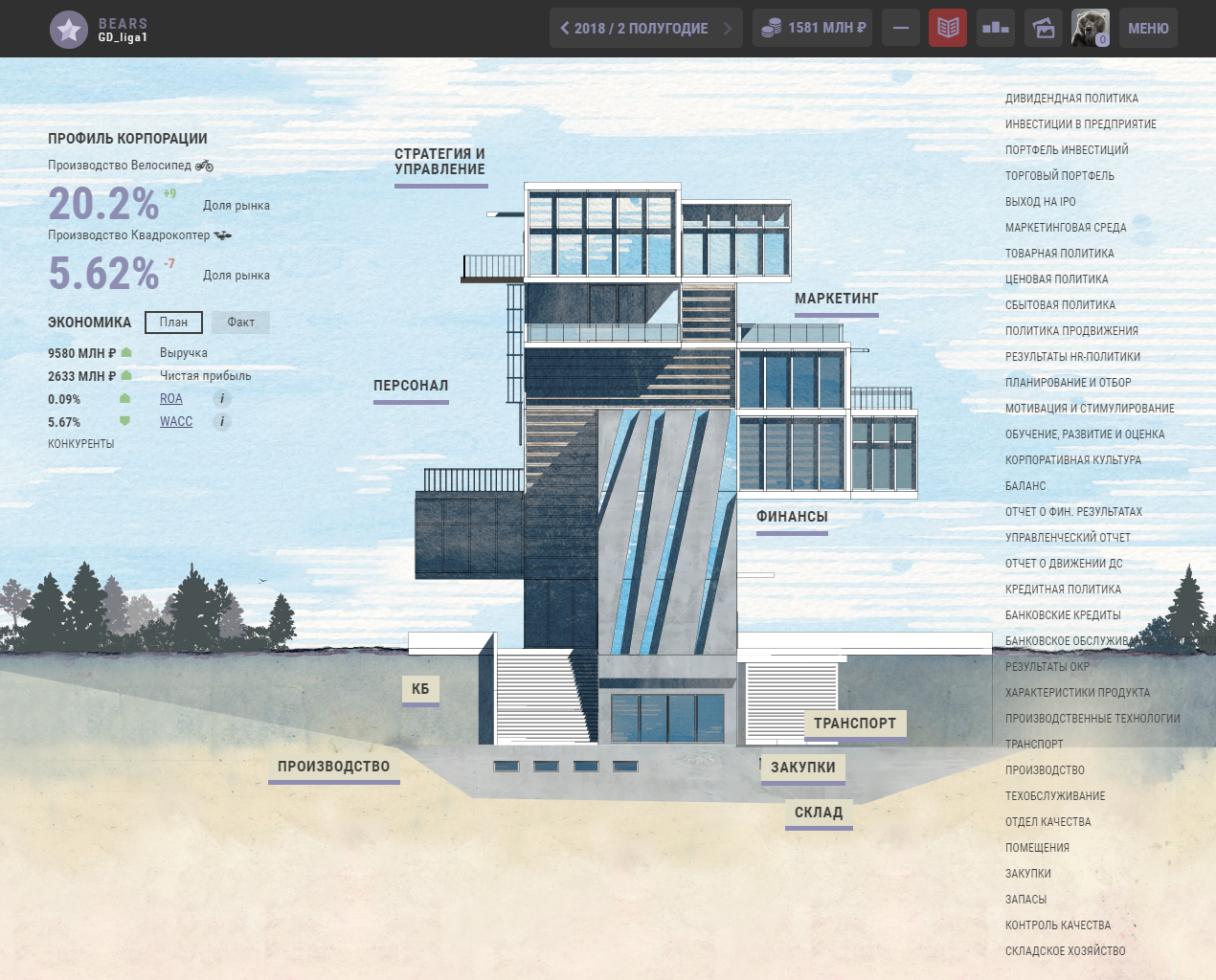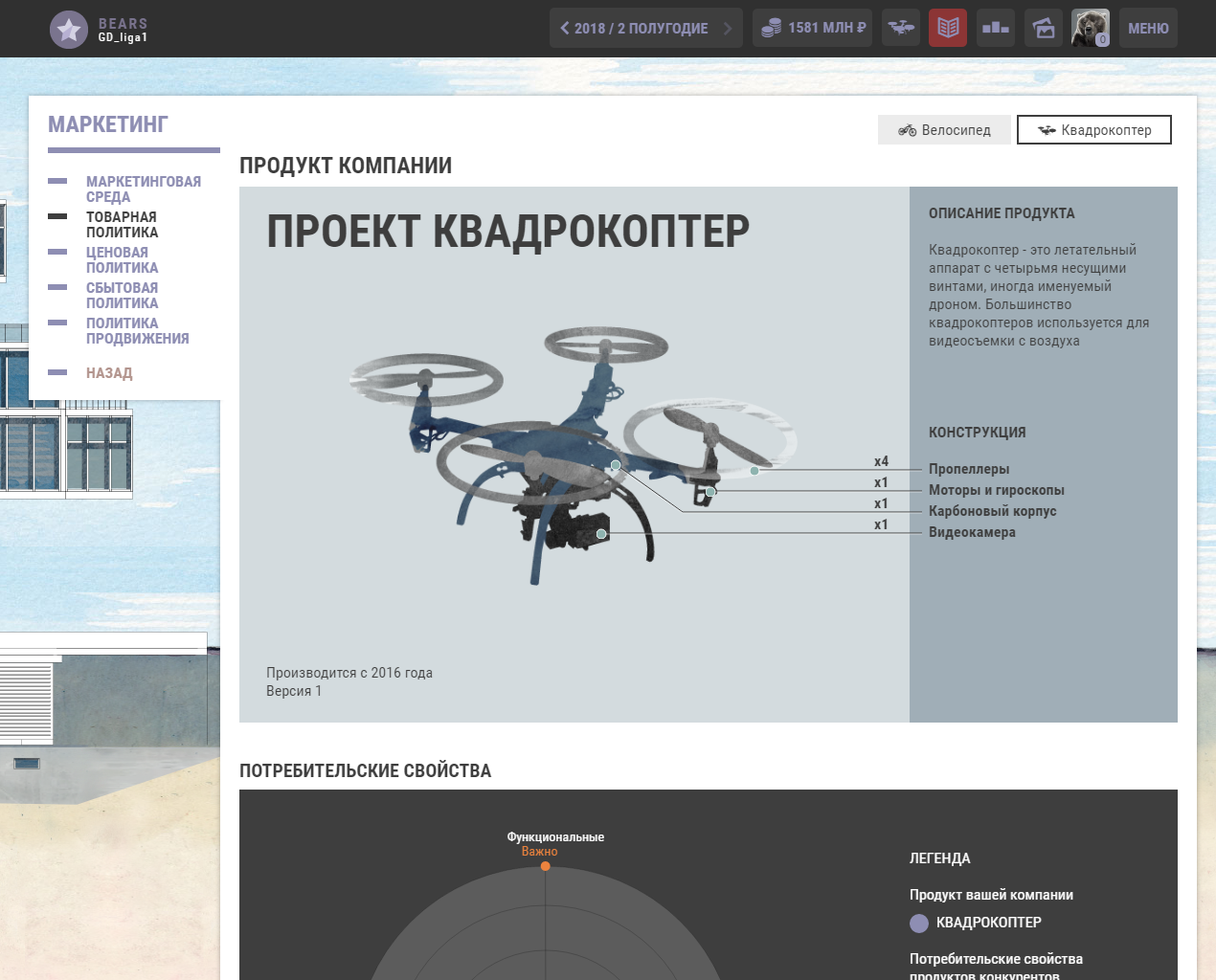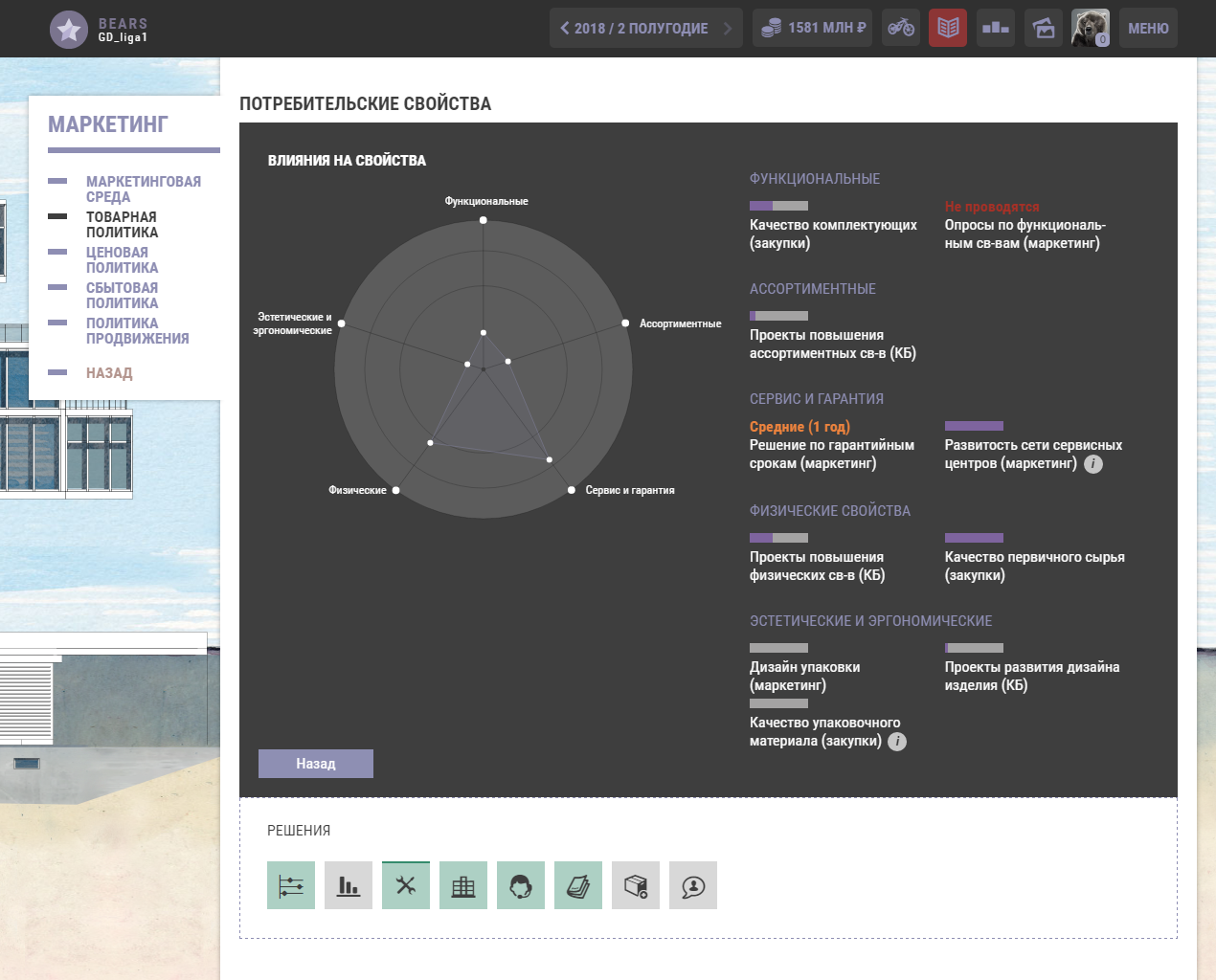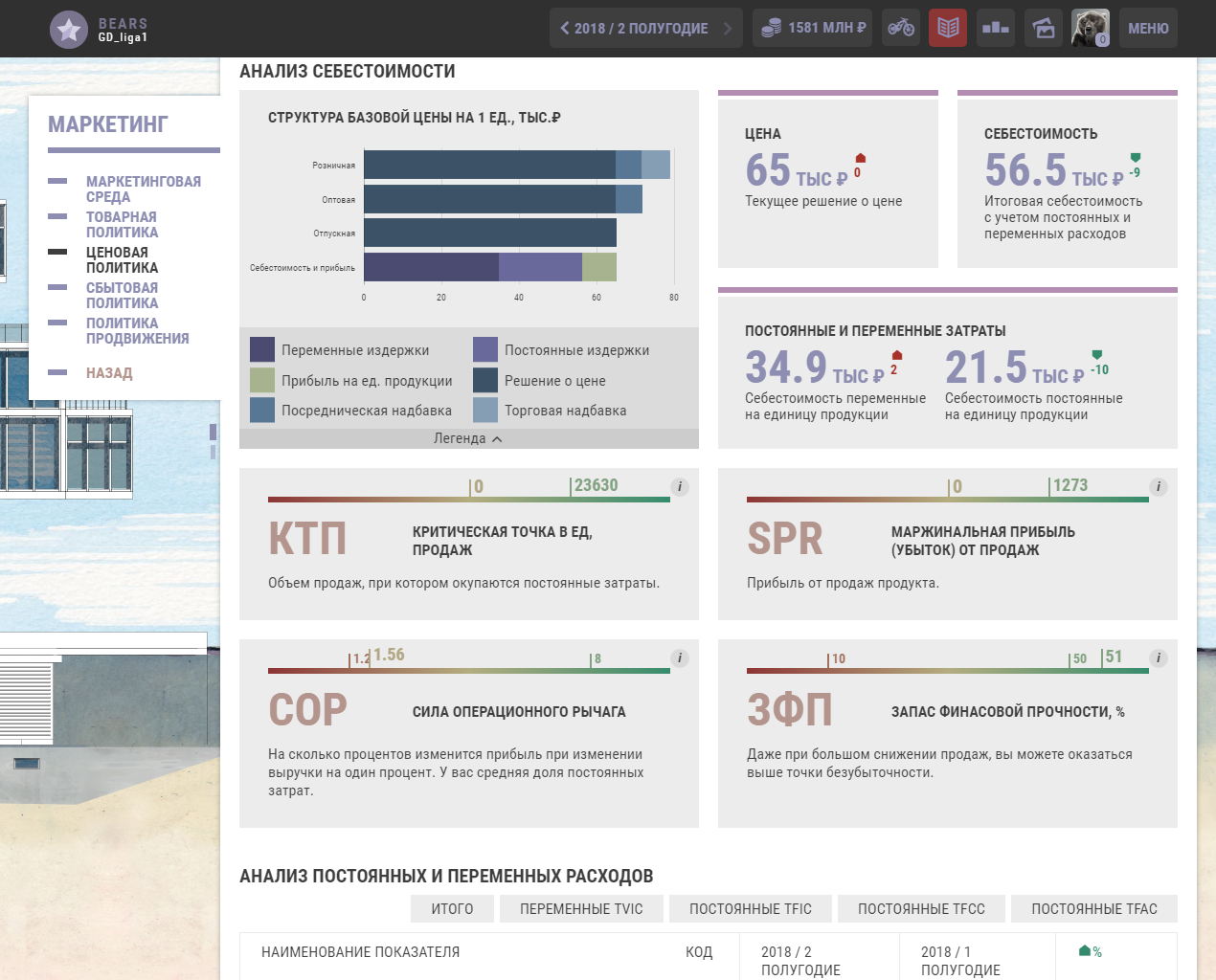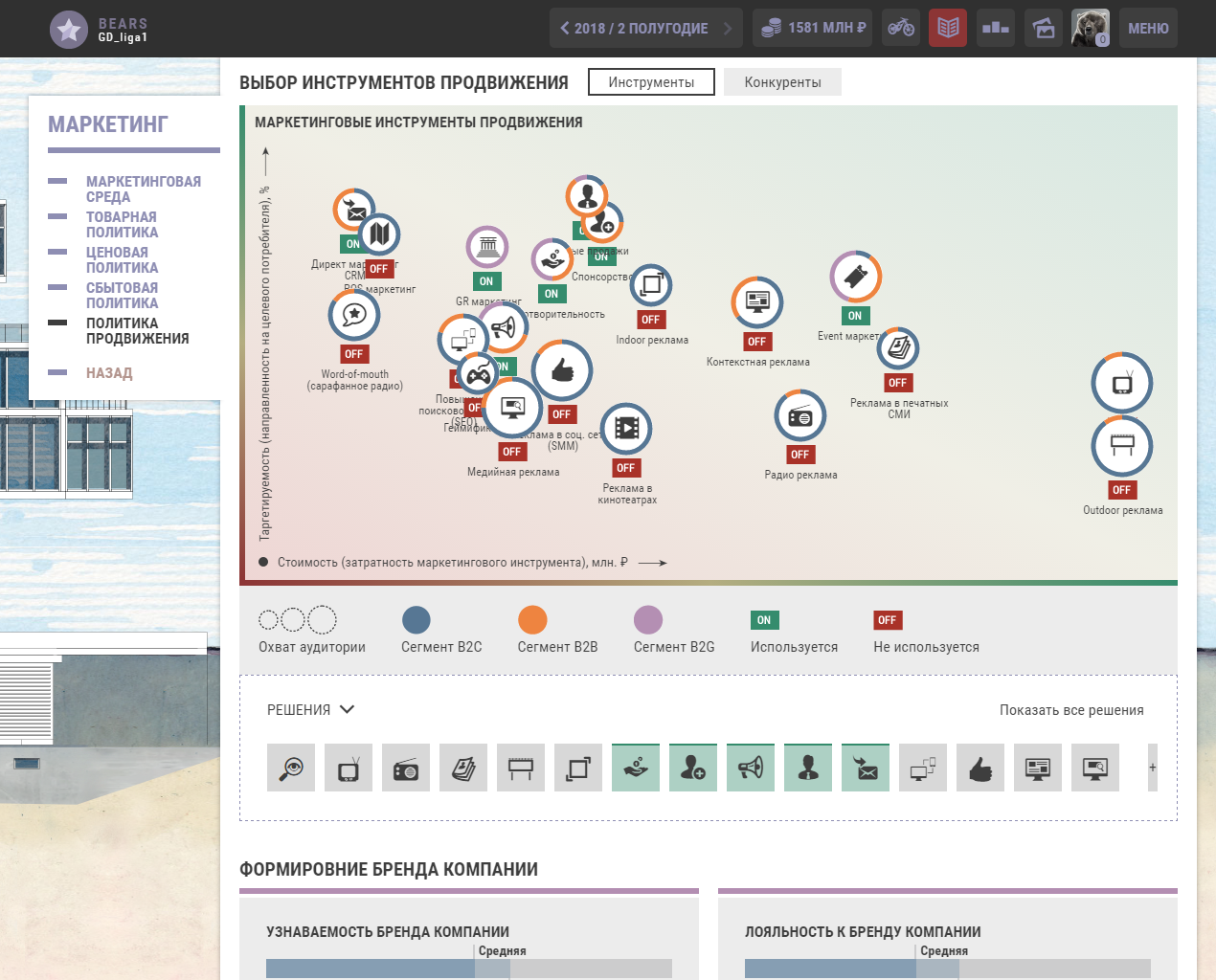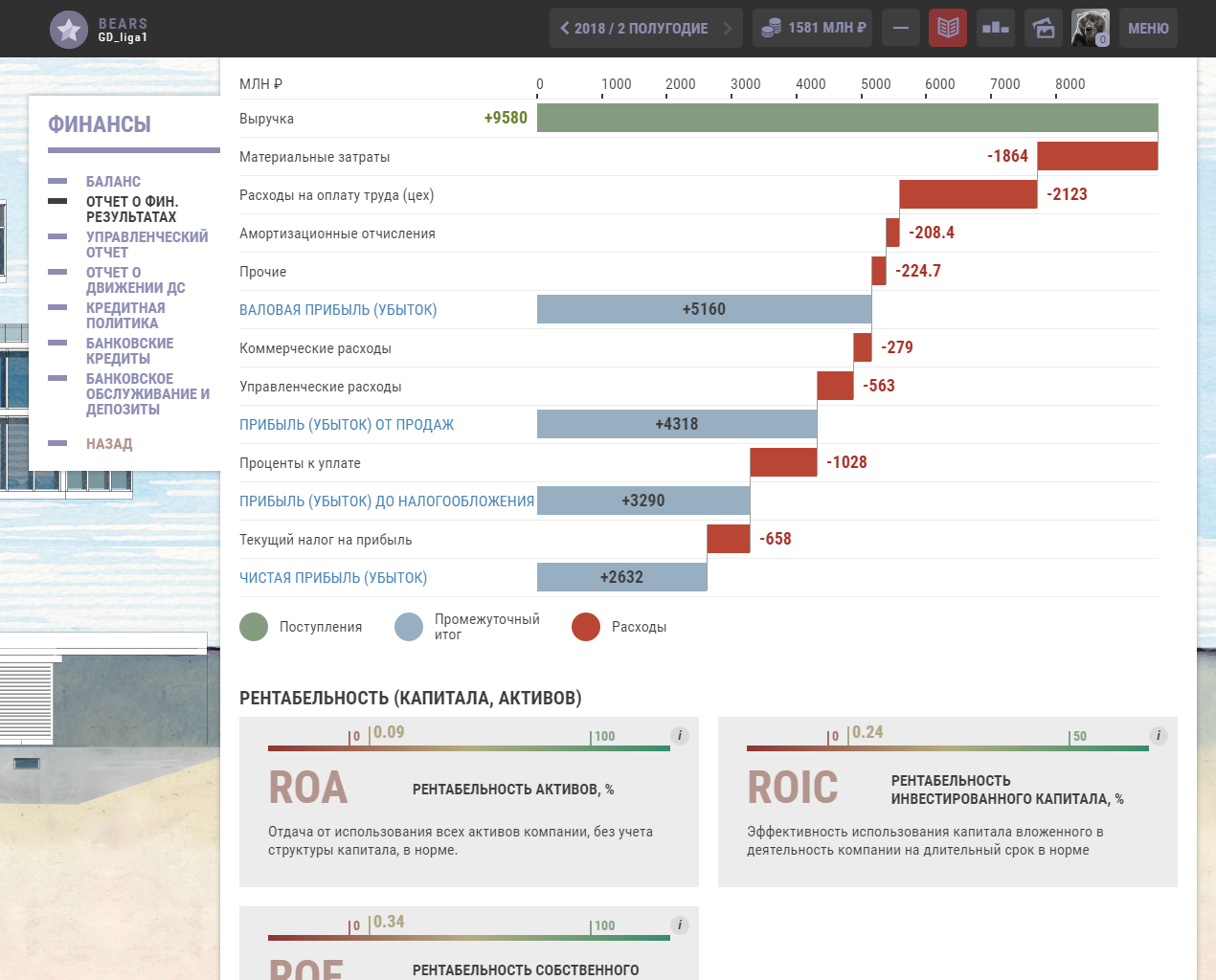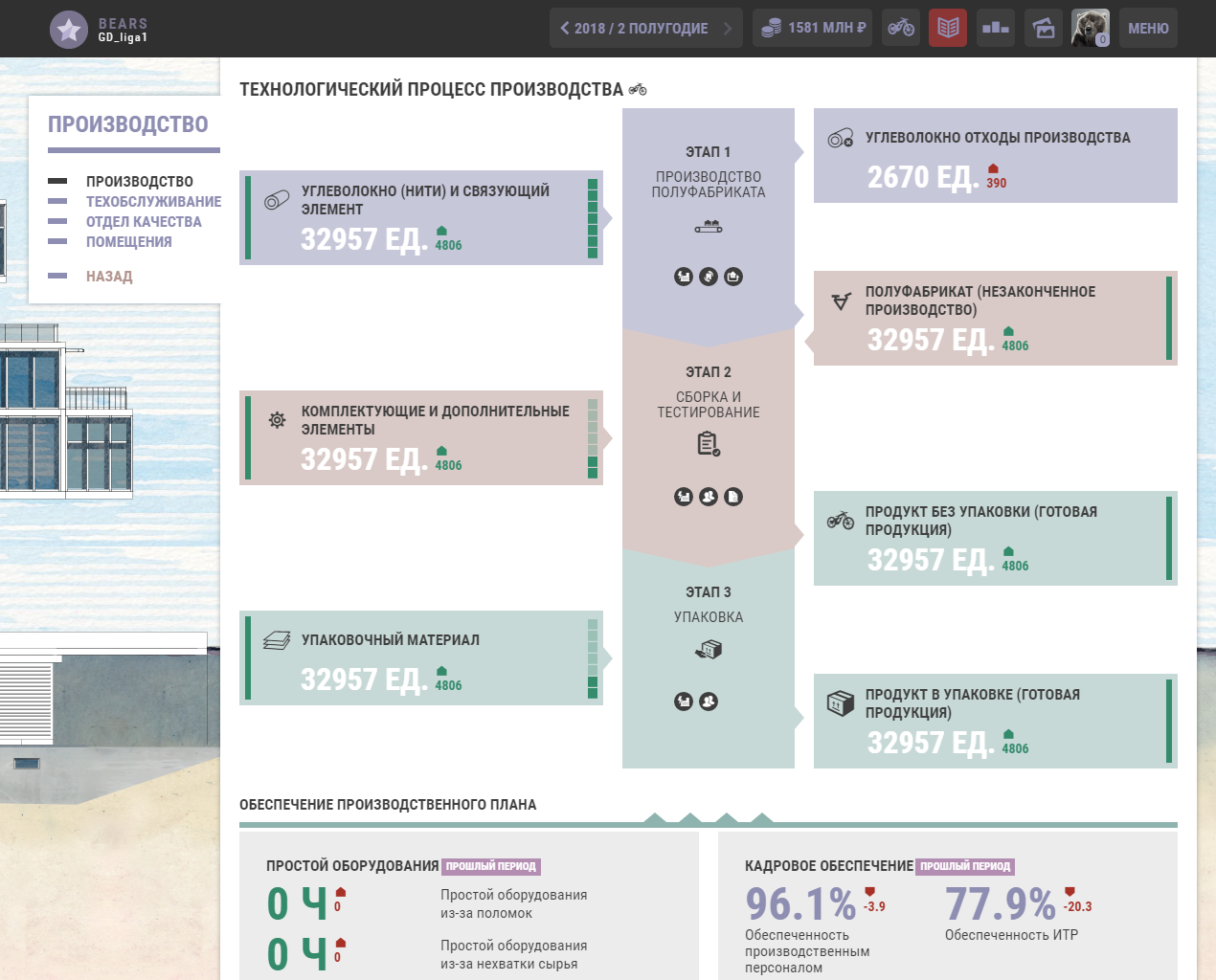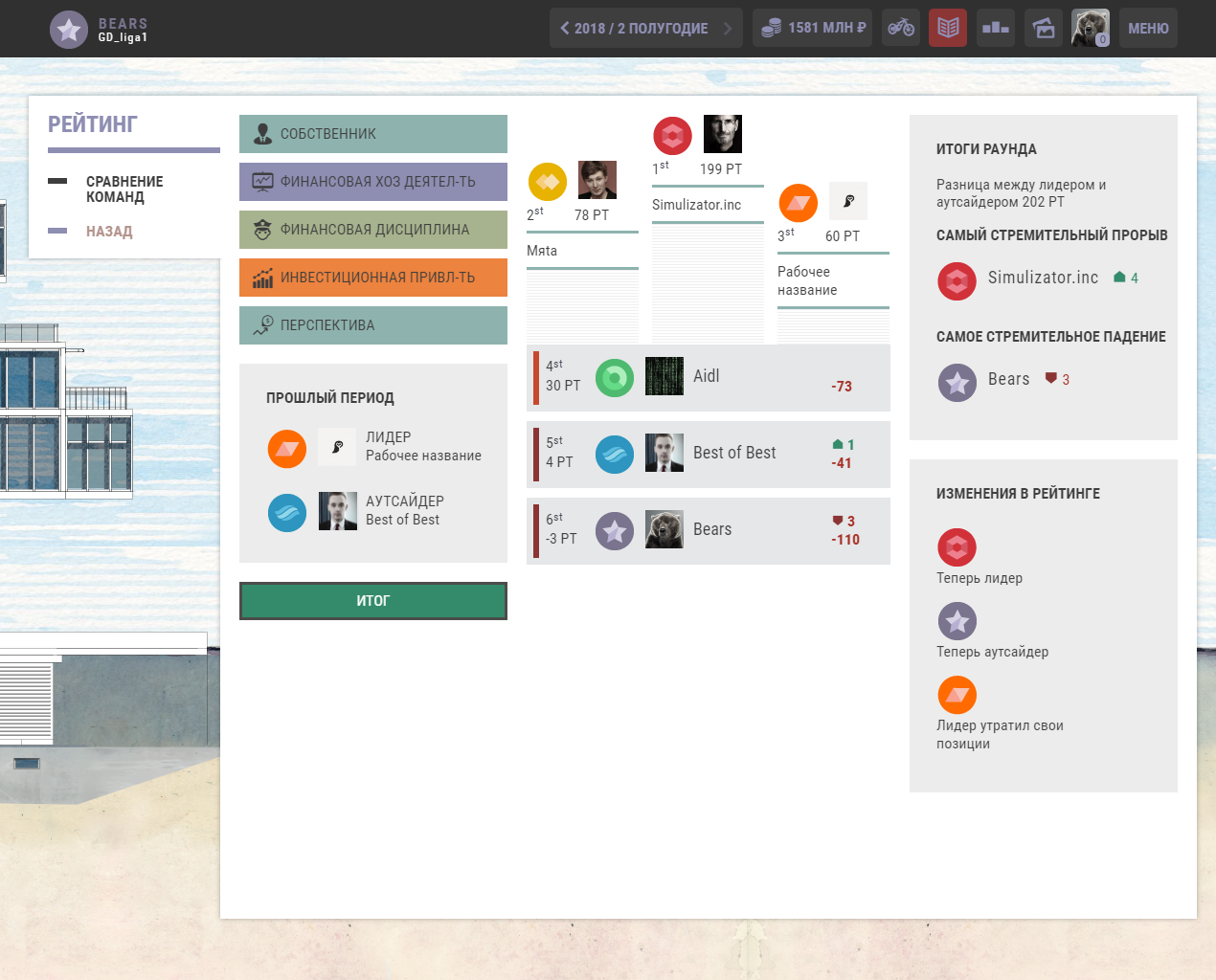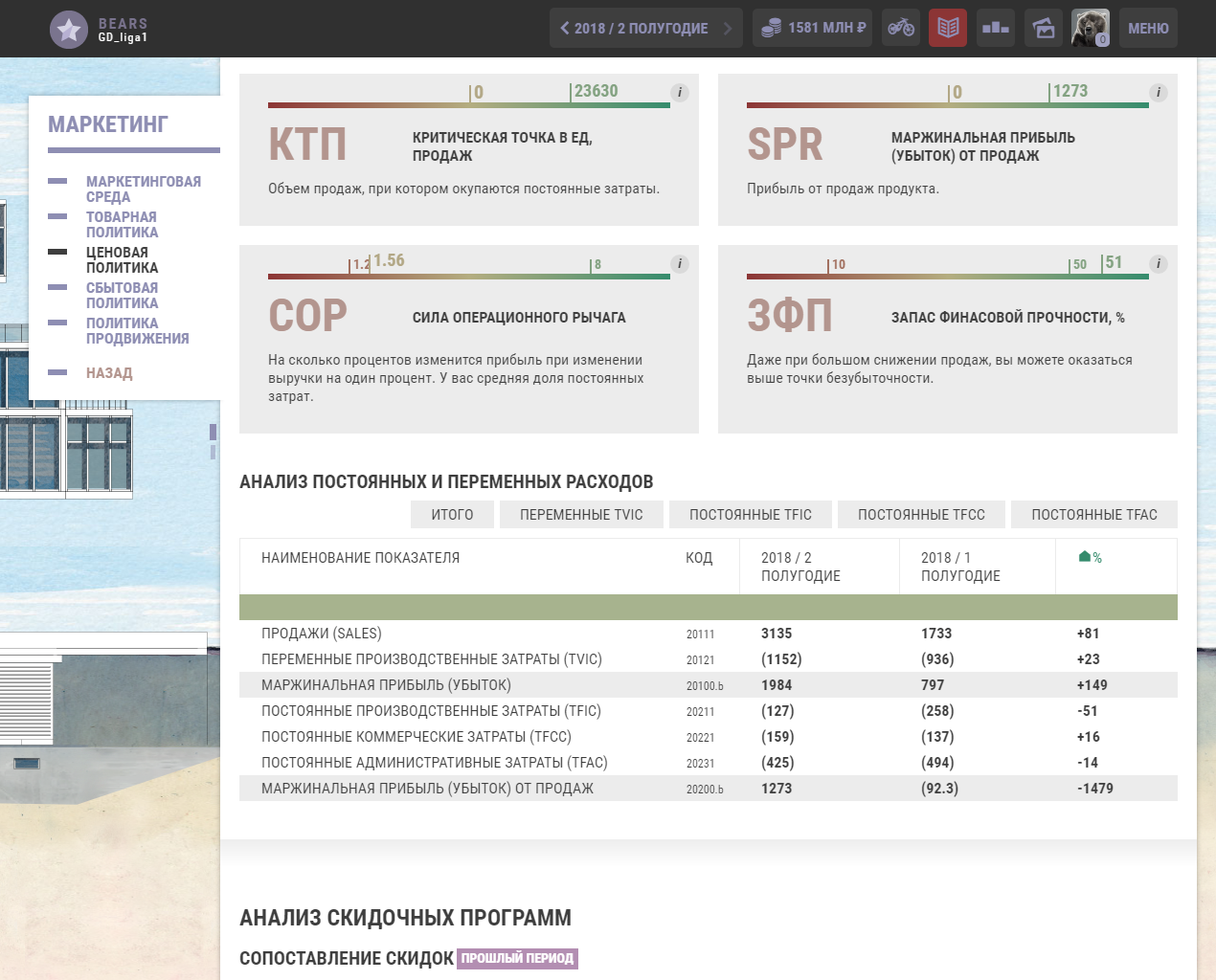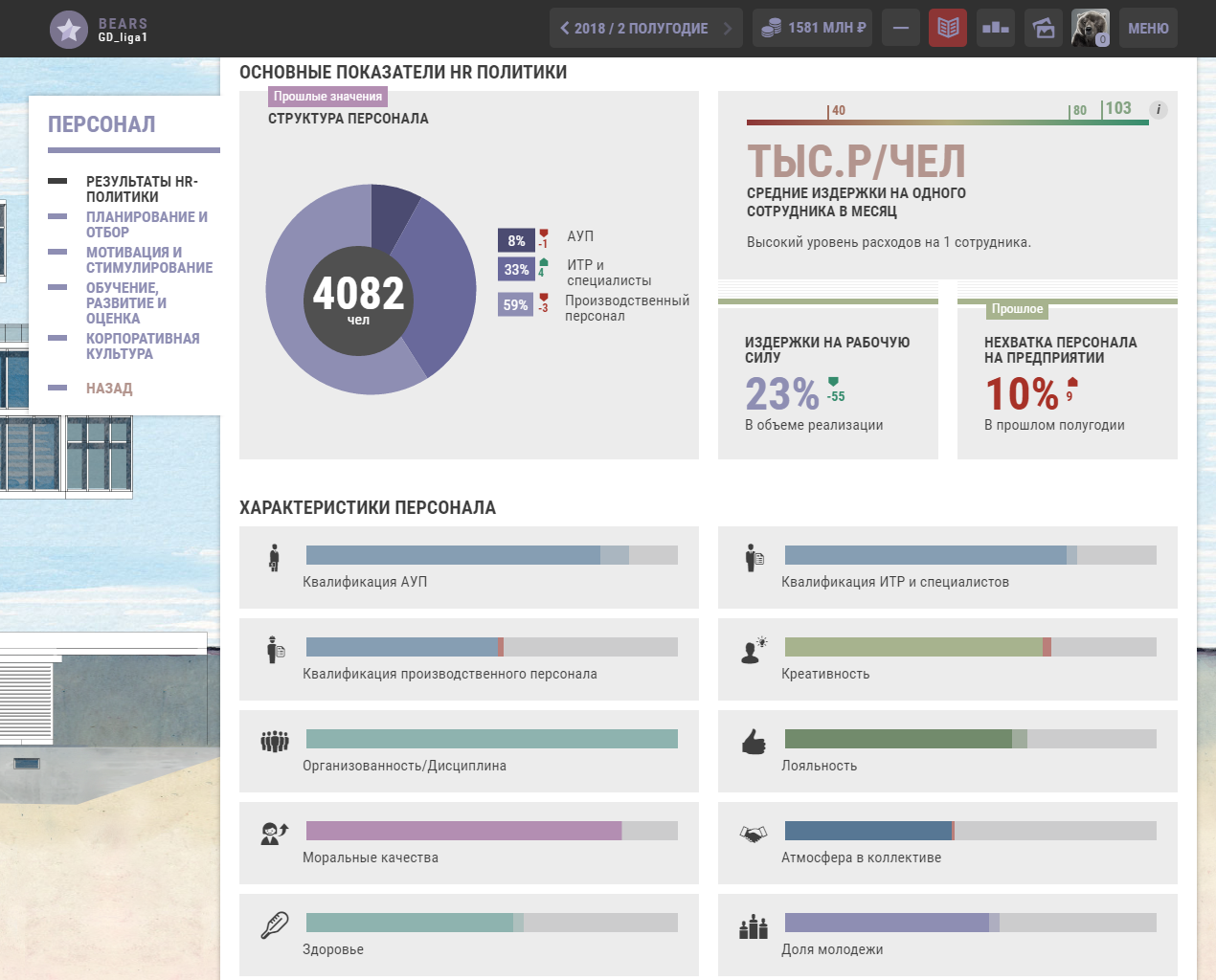Educational event features
Themes
-
Marketing. Consists of: market analysis, product policy definition; decision-making on the matter of company's pricing strategies through various price formation methods, discount programs formation; building and development of distribution channels, elaboration of product marketing strategy.
-
Personnel. Includes categorised analysis of employees' characteristics (management personnel, technologists and specialists, factory personnel); planning and personnel screening, employment strategy, recruiting channels selection; motivation and engagement; education, development and assessment, organisational culture activities.
-
Finances. Analysis of financial ratios and financial reports of the company (balance sheet, income statement, management accounting, cash flow statement); formation of credit policy in relation to customers; bank credits and deposits, banking service.
-
Production. That includes analyses of indices of production plan accomplishment, employee demands, resource provisioning, equipment malfunctions, as well as interaction with quality management department and decline in amount of defective products, maintenance of work equipment and process safety.
-
Supplies and logistics. Adjustment of quality, capacity and delivery schemes for purchased resources; provider selection and development of relationships; environment studies and choice of logistics company and delivery schemes; minimization of losses in resource and product deliveries.
-
Strategy and marketing. Dividend policy decisions; investment projects, analysis of project's efficiency indices (NPV, PI, DPP, IRR), project risks; planning of investment portfolio, mergers and acquisitions; decision-making on the matter of IPO; management of security holdings.
-
Store facilities. Resource, products and unfinished production safety stocks' capacity arrangement; development of store facilities and corresponding infrastructure; incoming inspection and policy of tackling defects.
-
Design office. Analysis of R&D results, product characteristics enhancement and implementation of more effective production technologies.
Participants
- Students to become specialists in finance and organisational management spheres, with such specialties as «corporate finance», «organisational management» etc.
- Management personnel and specialists of large manufacturing companies and corporations.
Participation results
-
Get a complex understanding of managing a huge manufacturer company.
Training of manager decision-making based on multiple factor analysis of inner and outside conditions of a company.
-
Create base manager competencies: activities planning, analysis of made decisions' results, operation in stress conditions with a shortage of time and resources etc.
Analysis of financial management efficiency of the company based on primary financial ratios.
-
Teamwork set-up, allocation of areas of responsibility, engagement of associates and subordinates in the proccess of achieving goals.
Operation in conditions with no comprehensive information about the situation and shortage of time and resources.
Formats
- Full-time staging for 1-2 days
- Simulator can be integrated in educational programs of bachelor's or master's degree and advanced training courses
- Inclusion of simulator in retreats, conferences and forums.
- Organisation of championships and olympiads
- Assessment tool
Educational event features
Themes
Participation results
-
Marketing. Consists of: market analysis, product policy definition; decision-making on the matter of company's pricing strategies through various price formation methods, discount programs formation; building and development of distribution channels, elaboration of product marketing strategy.
-
Personnel. Includes categorised analysis of employees' characteristics (management personnel, technologists and specialists, factory personnel); planning and personnel screening, employment strategy, recruiting channels selection; motivation and engagement; education, development and assessment, organisational culture activities.
-
Finances. Analysis of financial ratios and financial reports of the company (balance sheet, income statement, management accounting, cash flow statement); formation of credit policy in relation to customers; bank credits and deposits, banking service.
-
Production. That includes analyses of indices of production plan accomplishment, employee demands, resource provisioning, equipment malfunctions, as well as interaction with quality management department and decline in amount of defective products, maintenance of work equipment and process safety.
-
Supplies and logistics. Adjustment of quality, capacity and delivery schemes for purchased resources; provider selection and development of relationships; environment studies and choice of logistics company and delivery schemes; minimization of losses in resource and product deliveries.
-
Strategy and marketing. Dividend policy decisions; investment projects, analysis of project's efficiency indices (NPV, PI, DPP, IRR), project risks; planning of investment portfolio, mergers and acquisitions; decision-making on the matter of IPO; management of security holdings.
-
Store facilities. Resource, products and unfinished production safety stocks' capacity arrangement; development of store facilities and corresponding infrastructure; incoming inspection and policy of tackling defects.
-
Design office. Analysis of R&D results, product characteristics enhancement and implementation of more effective production technologies.
-
Get a complex understanding of managing a huge manufacturer company.
Training of manager decision-making based on multiple factor analysis of inner and outside conditions of a company.
-
Create base manager competencies: activities planning, analysis of made decisions' results, operation in stress conditions with a shortage of time and resources etc.
Analysis of financial management efficiency of the company based on primary financial ratios.
-
Teamwork set-up, allocation of areas of responsibility, engagement of associates and subordinates in the proccess of achieving goals.
Operation in conditions with no comprehensive information about the situation and shortage of time and resources.
Participants
Formats
-
- Students to become specialists in finance and organisational management spheres, with such specialties as «corporate finance», «organisational management» etc.
- Management personnel and specialists of large manufacturing companies and corporations.
-
- Full-time staging for 1-2 days
- Simulator can be integrated in educational programs of bachelor's or master's degree and advanced training courses
- Inclusion of simulator in retreats, conferences and forums.
- Organisation of championships and olympiads
- Assessment tool
Design of the simulator application
Main characteristics of the simulator
> 200
Managers and students successfully completed the simulation
18 — 36
People in a single league
6
In-game teams
6 — 10
Game periods
8 — 16
Hours of tense activity
> 34
Game interfaces
~1000
Parameters in reports
> 400
Key decisions
40
Parameters in rating of in-game teams
RU
Available languages
5
Held events
Main characteristics of the simulator
-
> 200
Managers and students successfully completed the simulation
-
18 — 36
People in a single league
-
6
In-game teams
-
6 — 10
Game periods
-
8 — 16
Hours of tense activity
-
> 34
Game interfaces
-
~1000
Parameters in reports
-
> 400
Key decisions
-
40
Parameters in rating of in-game teams
-
RU
Available languages
-
5
Held events
Materials needed for independent usage of the simulator application
Usage in educational process
- Access to the simulator application
- Method materials (workbook, presentations with questionnaires, player manual etc)
- Materials needed for organisation and staging of the game (timetable, nameplates for tables, checklist for carrying out the game, administrator manual etc)
- Training videos
- Support by means of call-center, E-mail, Skype
- Access to the simulator application
- Method materials (workbook, presentations with questionnaires, player manual etc)
- Materials needed for organisation and staging of the game (timetable, nameplates for tables, checklist for carrying out the game, administrator manual etc)
- Training videos
- Support by means of call-center, E-mail, Skype
To the customers in need of new simulators
The simulator of corporation managing models main business processes of a company, which could be detalised and enhanced further. The model created int that project might be used for creation of new versions of the simulator application in accordance to a customer's needs. Perspective trends of the simulator's development: 1) expansion of «sales» part of a company or creation of the model for a retail company; 2) development of various features of the simulator to the point of them becoming stand-alone specific-themed trainer.
Request
in university world rankings







